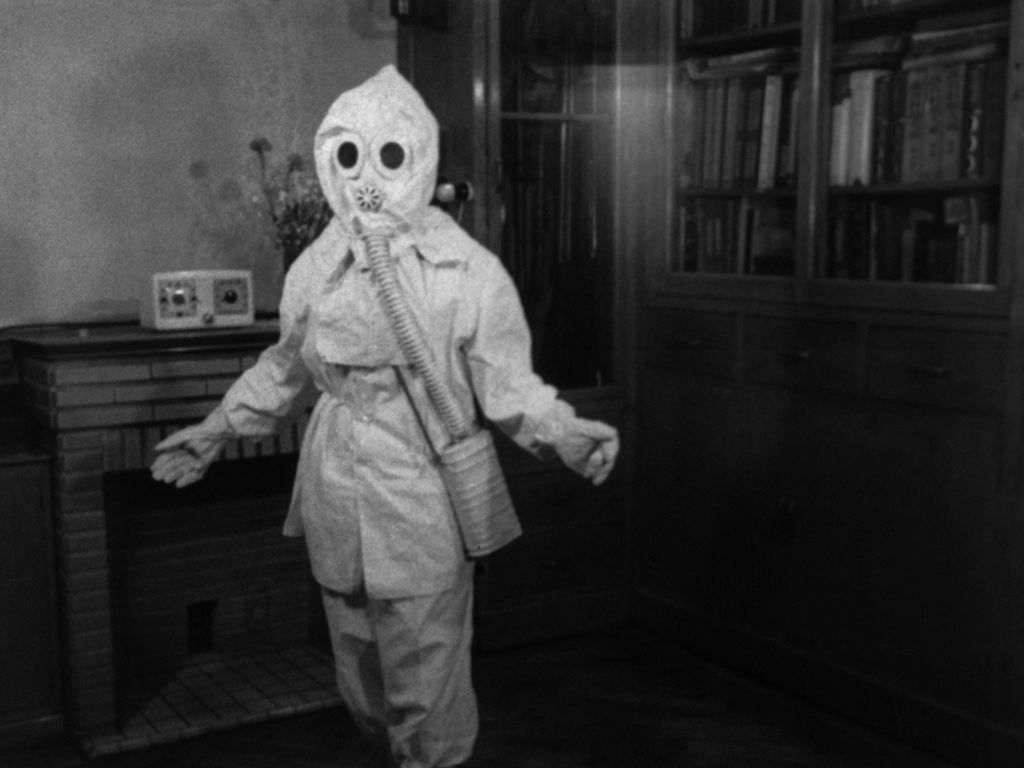Jayne Loader is a film director and writer. Originally released in 1982, “Atomic Cafe” was nominated for a BAFTA Award and selected for preservation in the United States’ National Film Registry by the Library of Congress in 2016. Loader is the author of the novel “Between Pictures” and the short story collection “Wild America,” both published by Grove Press.
The digitally restored version of “The Atomic Cafe” will premiere at the 2018 SXSW Film Festival on March 12. The film is co-directed by Kevin Rafferty and Pierce Rafferty.
W&H: Describe the film for us in your own words.
JL: “The Atomic Cafe” is a black comedy on the Atomic Age. It’s compiled from newsreels, civil defense films, and propaganda created by the U.S. government and military teaching Americans how to stop worrying and love the bomb.
We’re premiering the digital restoration, produced by IndieCollect, at SXSW.
W&H: What drew you to this story?
JL: The content of our movie emerged organically, from the research. Films about the atomic bomb were the most interesting, shocking, and relevant to the political landscape of the 1980s — and are even more pertinent today, unfortunately.
W&H: What do you want people to think about when they are leaving the theater?
JL: That it’s not possible to fight and win a nuclear war.
W&H: What was the biggest challenge in making the film?
JL: Since we didn’t use narration to make our points, the editing process was really grueling. We took many wrong turns during the five years it took to research and edit the movie.
W&H: How did you get your film funded? Share some insights into how you got the film made.
JL: We got some grants from nonprofits, but the film was mostly self-funded by my two partners.
W&H: What does it mean for you to have your film play at SXSW?
JL: It’s very cool! I’m a native Texan, but a first-timer at SXSW. It’s also especially fun because SXSW’s Director, Janet Pierson, was at the Film Forum when our film opened there in March 1982 and she and her husband fell in love while working together on the premiere.
W&H: What’s the best and worst advice you’ve received?
JL: After a fundraising screening, when our movie was almost finished, the late John Avildsen tried to convince me to dump the no-narration concept. He offered to get John Belushi to be our narrator. “You’ll make a million dollars!” John said. Perhaps. But if we’d done that, our film would be dated and nobody would be watching it today.
The best advice was from my mother: “The more you sleep, the prettier you get!”
W&H: What advice do you have for other female directors?
JL: If you want to have a successful career, pick your niche and stick to it rather than flitting like a butterfly from flower to flower the way I did.
W&H: Name your favorite woman-directed film and why.
JL: Chantal Ackerman’s “Jeanne Dielman, 23 quai du commerce, 1080 Bruxelles” is probably my favorite woman-directed film. It’s audacious, formally unique, and radically feminist. It’s 200 minutes long — and mesmerizing!
W&H: Hollywood and the global film industry are in the midst of undergoing a major transformation. Many women — and some men — in the industry are speaking publicly about their experiences being assaulted and harassed. What are your thoughts on the #TimesUp movement and the push for equality in the film business?
JL: All of this is long overdue. While sexual harassment wasn’t a problem for me personally, what did hurt my career was having my contributions minimized and not getting equal credit for my work.
Even today, if you Google “The Atomic Cafe,” you’ll find that I’ve been magically erased from film history. That’s why I left the film business and started writing fiction. I could write alone, with no help from anybody — and without having to raise any money — which I hate!







